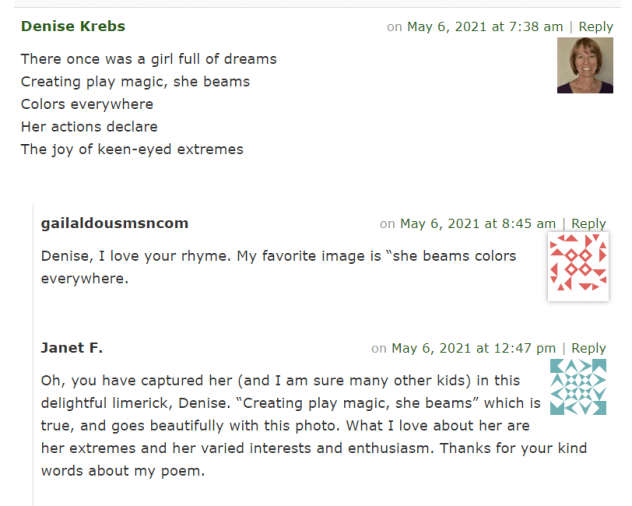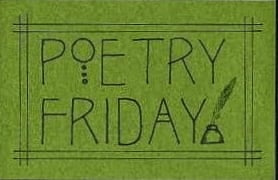Sunshine appeared, darkness fled.
Will-o’-the-wisp? No. Light came
And the stars were sent to bed.
Bayou’s verdant carpet frames
Our feasting on today’s bread.
Content with these gifts to claim.
I wrote that poem today on Margaret Simon’s post, “This Photo Wants to Be a Poem.” I wrote it after my National Writing Project prompt for today: “The Story of a Poem” with H.K. Hummel because I had light and will-o’-the-wisps on my mind.
I enjoyed hearing Heather’s multiple readings of the prose poem called “The Fable of the Sailor and the Kraken.” It is amazing how much more you can learn by hearing it again and again.
I like a quote she shared by Jane Anne Phillips about the difference between traditional poetry shapes and short prose. I’ve written a longer quote here:
“I didn’t realize it at the time, but I taught myself to write by writing one-page fictions. I found in the form the density I needed, the attention to the line, the syllable. I began writing as a poet. In the one-page form, I found the freedom of the paragraph. I learned to understand the paragraph as secretive and subversive. The poem in broken lines announces itself as a poem, but the paragraph seems innocent, workaday, invisible.”
~Field Guide by Jane Anne Phillips
Heather challenged us to use assonance in our prose poem about an encounter with a mythological beast representing the unknown and see if it “might unearth a new mystery about what it means to be human.” I’m glad she also added: “Don’t feel the need to explain. Let the mystery stay a mystery.”
To research which mythological creature I might write about, I went to this list on Wikipedia, looking for something that struck me about an unknown battling my humanity. I chose Will-o’-the-Wisp for my poem.
The Traveler and the Will-o’-the-Wisp
The byway through the bog darkened with each step, cracked with the crust of rotting creatures. When she first saw the flutter above the fen in the distance she remembered once reading the advice to not follow the lights but to use her own candles. Maybe it’s just fool’s fire, she thought; she wanted desperately to avoid the company of the dead. She had read Milton, so she hesitated, wondering if it was really leading or was this “hovering and blazing with delusive light”?
The Will-o’-the-Wisp had always wandered the earth, relentlessly beckoning travelers, leading them away from their true destinations. The Wisp radiated a glowing beam when she turned and walked toward it.

